Indian junior hockey players defied political tensions by sharing high-fives with their Pakistani counterparts after a draw, showcasing true sportsmanship and unity beyond borders. In a time when sports often mirror strained diplomatic relations, these young athletes proved that the spirit of the game can rise above politics. Their simple act of camaraderie sent a strong message of peace and mutual respect across the sporting world.
The incident, which took place after a fiercely contested match in the Sultan of Johor Cup, quickly went viral online, drawing admiration from fans and critics alike. While India’s cricket teams have chosen not to engage in post-match gestures with Pakistan in recent months, the hockey players chose a different path—one rooted in empathy and sportsmanship. Their gesture reignited conversations about what true rivalry should represent and reminded everyone that sports are meant to unite, not divide.
With both Indian and Pakistani players now set to compete in the upcoming Hockey India League (HIL), this moment serves as a beacon of hope for a more inclusive sporting culture. The young stars, including India’s Roshan Kujur and Sunil PB, are focusing on skill-building and learning from their senior peers, determined to carry forward the values of discipline, humility, and respect that define great athletes.
The Handshake That Sparked a Conversation
Handshakes, usually a routine sporting gesture, became a point of discussion in India’s sports circles after recent cricket controversies. Over the past few months, India’s men’s cricket team has refrained from shaking hands with Pakistani players as a symbolic tribute to the victims of the Pahalgam terror attack. This decision, repeated thrice in consecutive matches, reflected the complex intersection between politics and sports. Even the women’s cricket team followed suit during their World Cup encounter, setting a precedent of silent protest and solidarity with national sentiment.
However, in mid-October, when India’s men’s junior hockey team met Pakistan at the Sultan of Johor Cup, a refreshing contrast unfolded. The game, marked by aggression, skill, and high tension, ended in a 3-3 draw. But what stole the spotlight was what happened after the final whistle. Players from both sides walked towards each other, exchanging high-fives and handshakes with smiles—an act that captured the essence of sportsmanship in its purest form. It wasn’t scripted or politically motivated; it was simply a recognition of shared passion and effort.
Players Speak: “We Didn’t See Them as Enemies”
When asked about the gesture, Indian midfielder Roshan Kujur summed it up best: “It wasn’t like we were told not to shake hands. As players, we all work hard, and we didn’t see them as enemies or anything like that. They’re players just like us.” His words resonated deeply with sports fans who believe in the unifying power of athletics. In a landscape often dominated by nationalistic fervor, Kujur’s humility highlighted the mindset of a new generation of athletes—one that values mutual respect as much as victory.
Defender Sunil PB echoed similar sentiments, saying, “With Pakistan, it’s always about winning. We have to beat them. But in the end, it turned out to be a draw. Still, it was a good match.” His pragmatic view reflects how players separate competition from animosity. Both teams gave their all on the field, but when the match ended, they recognized each other’s hard work rather than harbouring hostility. Their interaction became a viral example of how sports can heal divides that politics often deepens.
The Pressure and the Pride of an India–Pakistan Match
Few rivalries in world sports carry the intensity of an India–Pakistan clash. Whether it’s cricket, hockey, or kabaddi, the emotional charge surrounding these fixtures is unmatched. For players, the psychological weight of representing their nation in such encounters can be immense. As Kujur explained, “First of all, losing to Pakistan is not an option. There’s always pressure in an India–Pakistan game; the name itself brings pressure. But we tried to handle it well and focus on giving our best.”
Despite the heavy expectations, India’s young team displayed composure and resilience. Their campaign in the Sultan of Johor Cup was impressive, culminating in a silver medal finish after a narrow 2-1 loss to Australia. The draw against Pakistan, though disappointing in terms of missed victory, became one of the tournament’s defining moments—not for the scoreline, but for the spirit of sportsmanship it embodied. The young players reminded the world that passion and respect can coexist, even in fierce competition.
From the Sultan of Johor Cup to the Hockey India League
After their success in Malaysia, both Roshan Kujur and Sunil PB are preparing for the next big step in their careers—the Hockey India League (HIL). For the 21-year-olds, the upcoming season represents an opportunity to sharpen their skills and compete with seasoned professionals. Kujur will continue with the Vedanta Kalinga Lancers, while Sunil, one of the team’s newest signings, is eager to make his mark in his debut season.
“I’ll talk to senior players, take their feedback on how I can improve, and apply that in my game,” Kujur said. His focus on continuous learning reflects the mindset of a disciplined athlete. Sunil added, “This will be my first season with the Lancers. I’ll focus on improving my drag flicks and try to learn from all the big players by watching and observing them.” Their dedication to self-improvement mirrors the values of teamwork and humility that their handshake moment represented on the international stage.
A Lesson in Sportsmanship for the Nation
The hockey team’s simple act of shaking hands with Pakistani players has been widely praised as a lesson in maturity and perspective. Social media users applauded the young players for displaying class and grace despite the charged backdrop. In an era where sports are often politicized, their gesture reminded everyone of what competition should truly stand for—mutual respect, growth, and the celebration of effort.
Sports psychologists also believe that such gestures can positively impact young athletes by reinforcing empathy and emotional intelligence. “When athletes respect their opponents, they learn to focus on performance instead of hostility,” said one expert. “It not only improves their game but also shapes them into better individuals.” The India–Pakistan hockey moment thus goes beyond the turf; it’s a cultural statement, an example of how small actions can foster goodwill between two nations divided by history.
The Way Forward: Building Bridges Through Sport
As the Hockey India League approaches, fans hope that the spirit shown by the junior team continues to influence Indian sports. Beyond medals and trophies, the true essence of sport lies in connection and humanity. The handshake in Johor Bahru may not have altered diplomatic equations, but it certainly changed how many perceive rivalry. These young players, through their instinctive act of kindness, became silent ambassadors of peace.
While political narratives will continue to shape public perception, athletes like Roshan Kujur and Sunil PB remind us that every match offers a chance to build bridges instead of walls. Their handshake was not a rebellion—it was a reaffirmation of what sports are meant to be: a celebration of skill, respect, and unity. And as they step into the Hockey India League, their story will inspire not just their teammates, but an entire generation of players to play hard, stay humble, and never lose sight of the bigger game—the game of humanity.
Also Read: India vs Australia: Clash of Titans in Navi Mumbai


Disclaimer
Possible11 is a sports news and analysis platform designed purely for entertainment and educational purposes. All match previews, player insights, and team analyses are based on publicly available information and expert opinions. We do not promote or support betting, gambling, or real-money gaming in any form. Users are encouraged to enjoy our content responsibly and use it for informational purposes only.
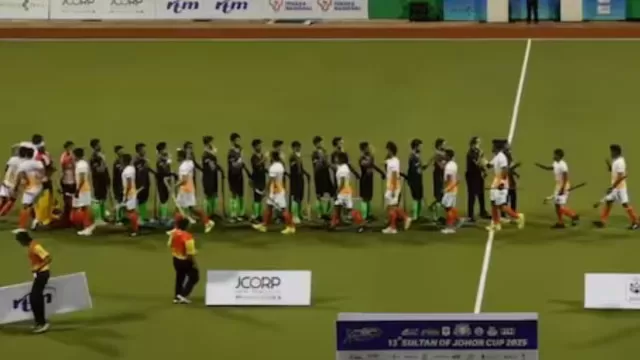
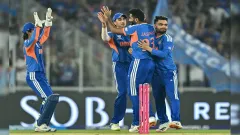
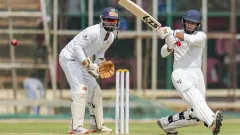
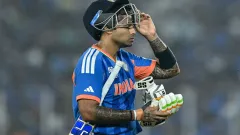

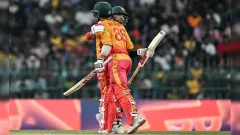
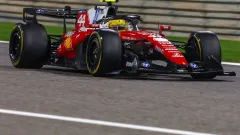
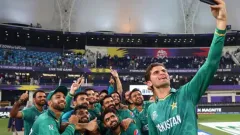
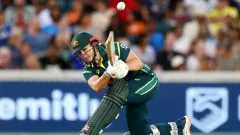
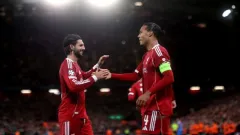


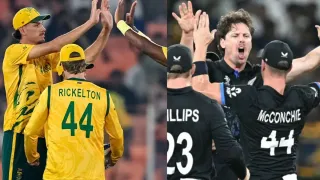
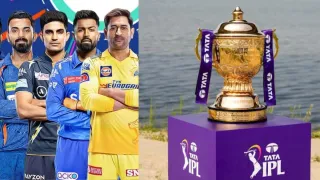

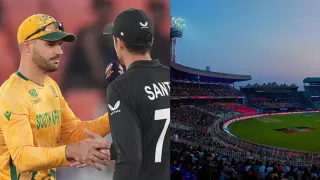
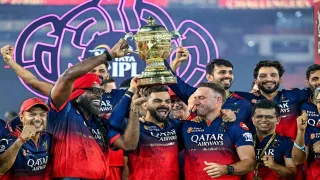
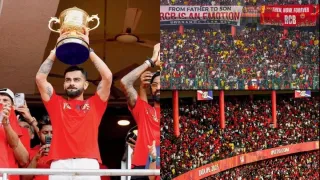
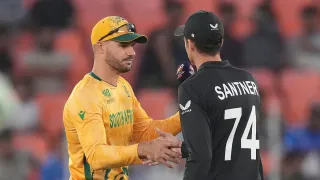
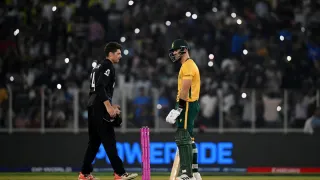
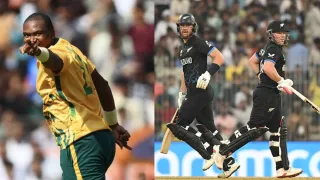
Give Your Feedback